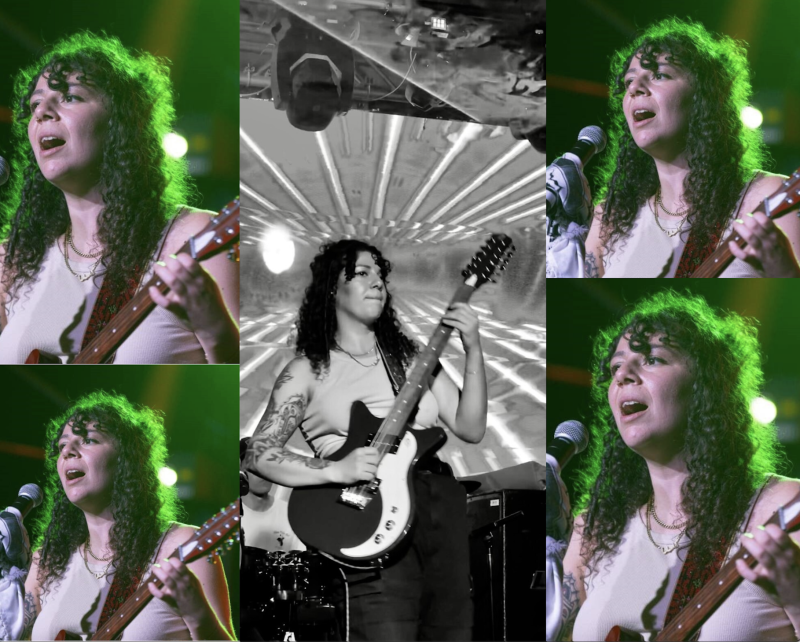“I like to think of it as, instead of scales and modulating chords and keys, you have a bunch of places, almost like cities on a map, and there’s a way to get from one place to another,” Boutros said. “Like there’s a bridge that takes you from San Francisco to Oakland, but you can’t take that same bridge to get to San Jose; you have to go a different way. Arabic improvisation can really feel like that like there are different routes to get from one musical place to another.”
Typical of Arab improvisation, the song starts low in pitch and then escalates to a climax before a gradual decline. Boutros plays with this format by incorporating audio from news clips into the musical climax of her song, drawing upon her observations of media portrayals in the United States.
She said people who listened to the song had described it as a really intense listening experience.
“They’ve told me that they can feel the anxiety that I was feeling, which maybe is a good thing. Maybe it’s a bad thing. I don’t know,” Boutros said. “But there are news clips in there about climate change. There are news clips in there about Palestine–I’m half Palestinian. About all kinds of things that I think people in the United States would find relatable from our experience of watching TV here.”
Boutros’s first album, Refuge, was written mostly during the pandemic lockdown when she discovered a daily routine and rhythm that helped carve out space and time for herself.
“There was this big slowdown for the pandemic, for everybody, for better or for worse. And everybody had to readjust in one way or another,” she said. “And then as people started going back to work, this gradual speed up happened. And I really, really felt it.”
Refuge was written with this slow down and routine in mind–as if every song on the album moves through a different time of day, from morning to night.
“Right around what I think of as midnight of the album, there’s a song ‘Refuge,’ which is the name of the album, which is kind of like, alright, you got through the day, you’re past anything that you needed to do, and if you didn’t do what you needed to do, well, it’s too late now, you can start again tomorrow, you can sort of just let go and party and celebrate,” she said.
At night, she can let go, be her most creative, and enjoy herself. She wanted the album to feel the same way she did every day during the pandemic.
“I don’t miss the lockdown at all,” she said. “But it did give me one of the few slowdowns I’ve ever had in my life. And I started trying to hold on to it as things started getting faster again. And now, I’m glad to see that the music scene, especially in the Bay Area, has really bounced back a lot.”
Boutros can be found playing trumpet for various bands in the Bay Area, on Instagram @camelliaboutrosmusic, and at The Lab in San Francisco on March 12 at 8 p.m. She is working on a second album, and you can listen to her music on Spotify and Bandcamp.
